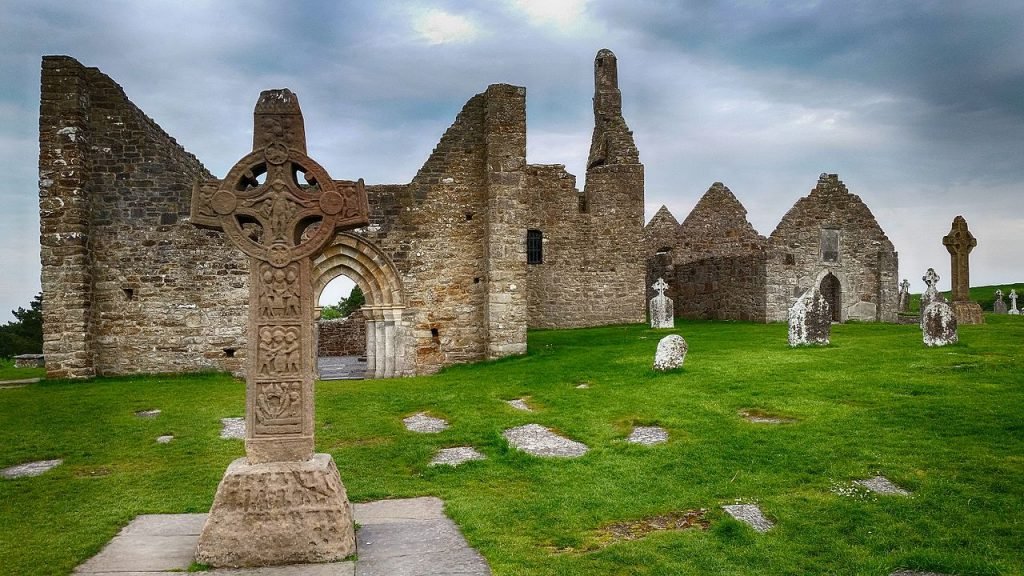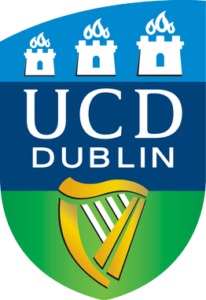Ireland is one of the most popular study abroad destinations in Europe. Its universities offer first-rate education in a traditional, yet modern setting. Thousands of study programmes at over two dozen schools attract international students from around the world.
Higher education system is the largest investments in the Ireland. One of the main reasons why the country has welcomed so many international students over the last one decade. Irish universities are among the best academic institutions, Modern Education Systems, very good library & friendly teaching facility and various technological and demandable academic subjects.
About Ireland ?
The Republic of Ireland is a European country. It is a member of the European Union. The population of Ireland is 4.6 million. English is the main language spoken. The Irish language is widely taught in all schools, and it is still spoken as a first language in some areas of the country, known as the Gaeltacht. Irish is the first official language, followed by English.
Total area of land 70,273 km², and capital city called Dublin.
Ireland had a long troubled history under British rule from at least the 1500s till the mid-1900s when the Republic of Ireland was formed as a separate nation. Ireland’s problems were compounded by great potato famines, high unemployment, and numerous political upheavals. In the second half of the 20th century, the conflict in Northern Ireland between republican (i.e. Irish) and unionist (i.e. British) groups grew violent. Ireland is its official name. It covers about five-sixths of the island of Ireland. The other sixth is called Northern Ireland, which is still part of the United Kingdom
However, throughout it all, the Irish people never lost their tenacity and humour. When you meet people and make friends in Ireland you will soon experience their good nature and their genuine interest in other people from around the world.
Those People who love nature, literature, and ancient history will really enjoy studying in Ireland. The Irish people are well known for their conviviality, and many of the cities outside of Dublin work hard to preserve their rich heritage, giving you many opportunities to explore the country. Also, since Ireland is so close to the United Kingdom, you can easily travel to London, Edinburgh and Glasgow as Communication network is very good.
- The language of instruction used in universities is English
- The country is part of the European Union (EU)
- Education institutions follow the Bologna system
- Students benefit from less tuition fees and living costs compared to the UK Although as a similar English medium education system like UK
- Ireland is known for its friendly people and safe environment
- Ireland was listed among the top countries where students are very satisfied with their study abroad experience
Almost all NON-EU Citizens, If decided to study in the Ireland , they need a student visa except from EU/EEA or Swiss citizens.
Once you make an application to the Irish university/ College and you being accepted at an Irish university, you’ll get an acceptance letter required for the visa application.
If you're not from the EU or EEA, you need to apply for a visa to enter Ireland and study there. The type of visa you should apply for depends on the length of your degree:
- C-type study visa – for any study programme/course that lasts less than 3 months (90 days)
- D-type study visa – for any study programme that lasts longer than 3 months. To stay longer than 3 months, non-EU/EEA students also have to register with the Garda National Immigration Bureau, which can grant the permission to stay in Ireland beyond the initial 90 days.
Visit the official website of the Department of Justice and Equality to find out if you need a visa to enter Ireland.
- You can apply for a study visa up to 3 months before your date of arrival in Ireland.
- To apply, you must simply complete an online application form on the website of the Irish Naturalization and Immigration Service.
- After filling the online application process, follow the instructions and submit your supporting documentation.
- You may be required to provide your Biometrics information as part of the application process.
- The visa processing time is variable, depending on your nationality and other factors. Usually, you will get an answer in 4 to 8 weeks from the date on which your application is lodged at the Visa Office/Embassy/Consulate.
International students must meet the minimum English language requirements in order to be granted a student immigration permit.
You will be required to provide proof of English language proficiency through an internationally recognised certificate, which has been issued within 2 years of the expected start date of the course. Accepted English exams are:
- IELTS (Academic)
- TOEFL IBT
- Universities set their own standards for English language ability, so contact your university of choice to see the minimum IELTS or TOEFL band score you’ll need to full fill their entry criteria in order to get admission.
- Copies of all academic qualifications and exam results required for university studies
- Confirmation of Acceptance for Studies ( CAS)
- Evidence accounting for any gaps in your educational history
- English language proficiency certificate
- Proof you have sufficient funds to support your stay in Ireland without recourse to public funds.
- Proof of payment of the registration and tuition fees
- Medical Insurance
- Two recent colour passport-size photo
- Valid Passport ( Minimum more than six month valid)
- Statement of purpose (SOP ) stating the reason why you want to study to Ireland)
- Commitment to leave Ireland on the expiry of your visa
The estimated costs of living in Ireland for a student during one academic year are 7,000-11,000 EUR. Non-EU/EEA students who are studying, Cost of living depends on what city you’re staying in, but you should expect to pay between €7,000 to €12,000 annually on accommodation, food, and other things.
Find out more up-to-date information about the student visa for Ireland on the official Irish government website.
All Non-EU/EEA International students can work while studying:
- Part-time: up to 20 hours per week during semesters.
- Full-time: 40 hours per week during scheduled holidays like during the months of June, July, August and September and from 15th December to 15th January inclusive.
However, they have to meet the following criteria:
- Hold a GNIB card – a certificate of registration you receive from the Immigration Office on your arrival in Ireland
- Be enrolled in a study programme that is included on the government's list of visa eligible course.
If you enrolled for a study degree that lasts longer than 3 months, you will need to register at the local Garda National Immigration Bureau (GNIB) as soon as you arrive in Ireland.
You will have to submit documents such as:
- Passport
- Four recent passport-size photographs
- Documentation regarding your entry into Ireland (e.g. evidence of funds, or Confirmation of enrolment on a recognized course)
The residence permit allows you to stay in the country for up to 12 months. You will receive a Certificate of Registration (known as a Green Book), which must be renewed before it expires.
- Agriculture & Forestry
- Applied Sciences & Professions
- Arts, Design & Architecture
- Business & Management
- Computer Science & IT
- Education & Training
- Engineering & Technology
- Environmental Studies & Earth Sciences
- Hospitality, Leisure & Sports
- Humanities
- Journalism & Media
- Law
- Medicine & Health
- Natural Sciences & Mathematics
- Social Sciences

IRELAND
IRELAND Universities
| LOGO | UNIVERSITIES | CAMPUS | COURSES | INTAKE |
|---|---|---|---|---|
 | university college dublin | Dublin | See More Courses | January May September |
